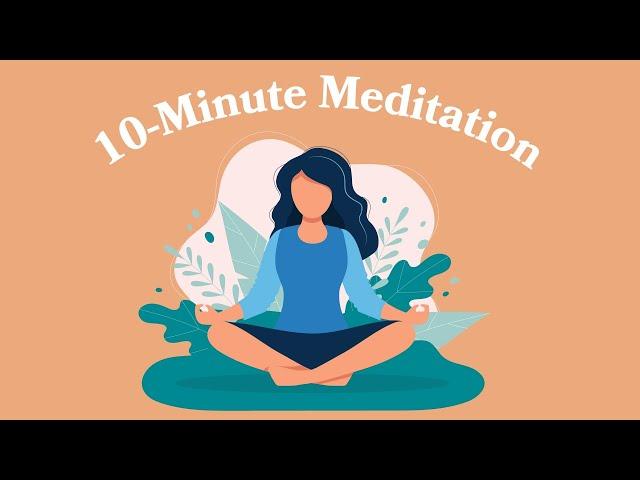In the hustle and bustle of our modern lives, where the relentless tick of the clock seems to echo our racing thoughts, the ancient practice of meditation has emerged as a beacon of calm. From Silicon Valley tech giants to suburban yoga studios, meditation is hailed as a panacea for the myriad stresses of contemporary existence. But can this age-old practice truly be the silver bullet for our modern woes? As we delve into the world of mindfulness and tranquility, we explore whether meditation is the ultimate remedy for stress or simply a momentary escape from the chaos that surrounds us. Join us on this contemplative journey as we sift through science, tradition, and personal narratives to uncover the real impact of meditation on our frazzled minds.
Exploring the Science Behind Meditations Impact on Stress
Recent scientific studies have unveiled fascinating insights into how meditation can effectively mitigate stress. At the core of these findings is the understanding that meditation engages the parasympathetic nervous system, often referred to as the “rest and digest” system. By activating this system, meditation induces a state of relaxation that counteracts the ”fight or flight” response triggered by stress. This physiological shift can lead to decreased levels of cortisol, the stress hormone, which has been linked to numerous health issues when present in excess.
Moreover, meditation has been shown to promote changes in the brain’s structure and function, particularly in areas associated with emotional regulation and resilience. Key benefits include:
- Increased gray matter density in regions related to attention and emotional regulation.
- Enhanced connectivity between different parts of the brain, facilitating better emotional processing.
- Reduced activity in the amygdala, the brain’s stress and fear center.
These changes not only help in managing stress more effectively but also foster a sense of calm and well-being, making meditation a valuable tool in today’s fast-paced world.

Understanding Meditations Role in Emotional Regulation
In the labyrinth of human emotions, meditation emerges as a beacon of tranquility. It plays a pivotal role in enhancing our ability to regulate emotions by cultivating a heightened awareness of our mental states. Through the practice of mindfulness, individuals learn to observe their thoughts and feelings without judgment, allowing for a deeper understanding of emotional patterns. This awareness fosters a sense of detachment, reducing the grip of intense emotions and paving the way for a balanced response to life’s challenges.
Benefits of Meditation in Emotional Regulation:
- Mindfulness: Encourages a non-reactive state, promoting calmness and clarity.
- Stress Reduction: Lowers cortisol levels, the hormone associated with stress.
- Enhanced Focus: Improves concentration, aiding in the management of emotional triggers.
- Increased Emotional Intelligence: Develops empathy and understanding towards oneself and others.

Practical Meditation Techniques for Everyday Stress Relief
Incorporating meditation into daily life doesn’t require hours of seclusion or the perfect setting. In fact, there are several simple techniques you can integrate into your routine to help alleviate stress. Consider starting with mindful breathing, which involves focusing on each breath as it enters and leaves your body. This technique can be practiced anywhere, from a quiet corner of your home to a bustling office environment.
- Body Scan Meditation: Take a few minutes to mentally scan your body from head to toe, acknowledging any areas of tension and consciously relaxing them.
- Guided Visualization: Use audio guides or apps to transport your mind to serene landscapes, allowing your senses to indulge in the calming imagery.
- Walking Meditation: Transform your daily walk into a meditative practice by focusing on the rhythm of your steps and the sensation of your feet touching the ground.
By incorporating these techniques into your daily routine, you can create moments of tranquility that help to manage stress and promote a sense of balance in the midst of modern life’s chaos.

Balancing Expectations: What Meditation Can and Cannot Do for Stress
Meditation, often hailed as a remedy for the relentless pace of modern life, offers a refuge of calm amidst chaos. Through regular practice, it can significantly enhance your ability to manage stress by promoting mindfulness, reducing anxiety, and improving emotional health. Some of the potential benefits include:
- Increased Focus and Clarity: Helping you navigate daily challenges with a clear mind.
- Emotional Resilience: Building a buffer against stressors, allowing for more measured reactions.
- Improved Sleep: Facilitating deeper, more restful sleep by calming the mind.
However, it’s essential to recognize the boundaries of what meditation can achieve. It is not a magic bullet that will eliminate all stress or its sources. For those dealing with chronic stress or mental health conditions, meditation should be viewed as a complementary practice rather than a standalone solution. It may not directly address underlying issues such as workplace demands or personal conflicts. Therefore, while meditation can be a powerful tool in your stress management toolkit, it is most effective when integrated with other strategies such as therapy, exercise, and a balanced lifestyle.
The Conclusion
In the quest to navigate the labyrinth of modern stress, meditation emerges as a beacon, casting light on the path to tranquility. Yet, it is not a universal panacea, nor a one-size-fits-all solution. Instead, meditation invites us to pause, breathe, and listen to the whispers of our inner world, offering a momentary reprieve from the clamor of daily life. As we continue to explore its depths, meditation stands as a testament to the power of presence, a gentle reminder that in the midst of chaos, peace is but a breath away. While it may not cure all, it certainly enriches the journey, allowing us to approach each day with a touch more grace and a dash more resilience. perhaps the true gift of meditation is not the promise of a stress-free existence, but the empowerment to face life’s challenges with a steadier heart and a clearer mind.
